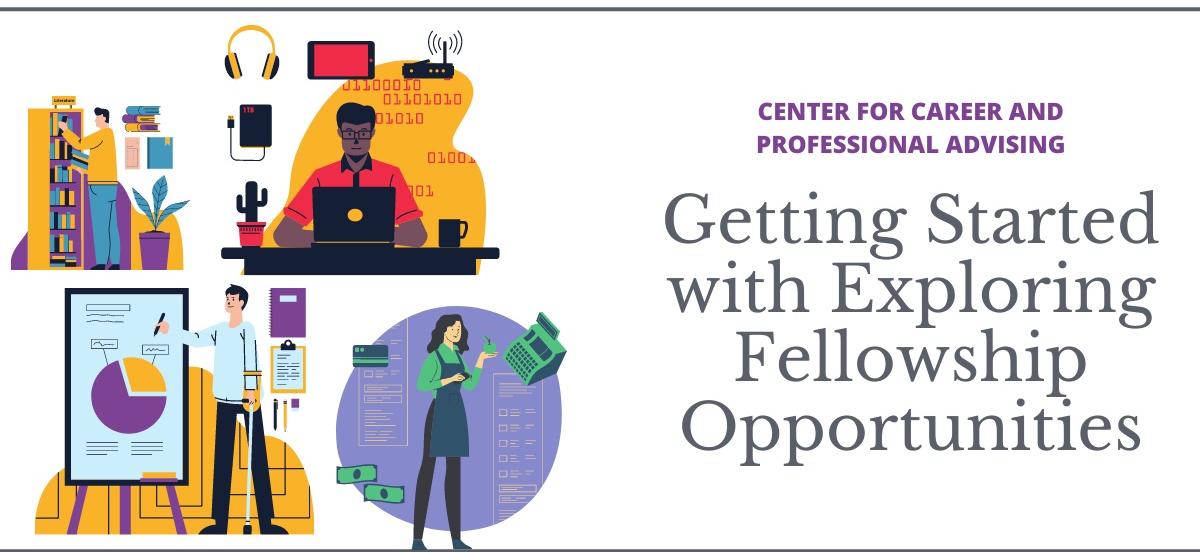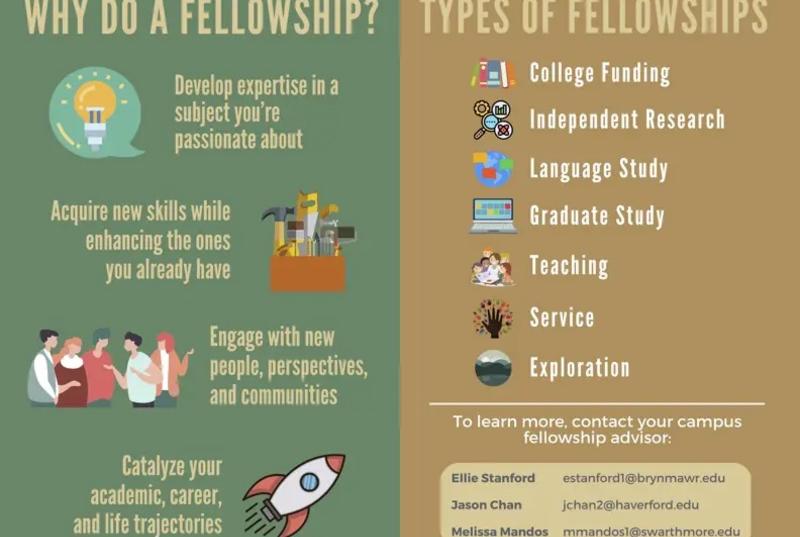Getting Started with Exploring Fellowship Opportunities

Details
You may have heard of fellowship programs like Fulbright or the Watson, but what exactly are fellowships? This update discusses why you might want to consider a fellowship, the different types of opportunities out there, and how you can start exploring potential opportunities!
What is a fellowship and why should I consider one?
Fellowships are intensive and transformative experiences designed to be catalysts in your academic and professional trajectories. Fellowship programs select you for your potential and promise, provide you with an immersive experience, and connect with you an extensive peer and alumni network – all to catapult you to the next chapter of your life and career journey.
What would I be doing in a fellowship?
Fellowships come in a variety of types. Some, like the Fulbright Study/Research award, involve conducting research, while others, like the Marshall or the Mitchell, are intended for graduate study. Some, like the Fulbright ETA, are oriented around teaching, while others like the Luce and Princeton in Asia place fellows in service or professional organizations. And while some, like the Gaither, are based in the U.S., others take place overseas or – in the case of the Watson – across multiple countries.

When should I start thinking about applying to fellowships?
The earlier, the better! Advance planning is key to ensuring you have time to prepare a strong application. The ideal time to begin thinking about fellowship opportunities is junior year, as many deadlines are in early- to mid-fall semester of senior year. There are even a few programs to which students apply as juniors – the Goldwater Scholarship for aspiring STEM researchers and the Truman Scholarship for aspiring public service leaders being notable examples.
How can I find and learn more about fellowship opportunities?
The CCPA can be your first stop in learning more about fellowships. Some steps to take:
- Check out our Fellowships 101 Video Series
- Browse the fellowships section of our website, including our sortable lists of fellowship opportunities and an overview of how to apply
- jchan2 [at] haverford.edu (Email) or schedule a meeting with me to chat about your interests and identify fellowships that might be a good fit.
Faculty and staff members can also be great resources; some may even be past fellowship recipients themselves! Lastly, a good website to bookmark is ProFellow, with its searchable database of opportunities and numerous articles of advice.
As Haverford’s fellowship advisor, I encourage all students to think about fellowships as they consider their post-college options. Taking the time to reflect on who you are, how you developed your interests and passions, and where your life journey is leading you can be incredibly insightful. Exploring and applying to fellowships can help you with this discernment process and, regardless of the outcome, prepare you well for what’s next after Haverford!




